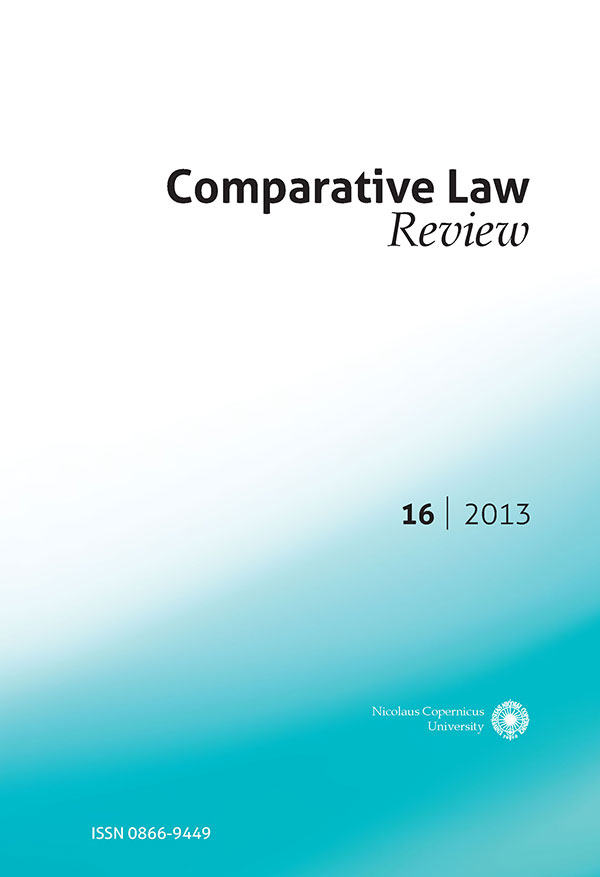REFUSAL OF ENFORCEMENT OF A EUROPEAN ORDER FOR PAYMENT
REFUSAL OF ENFORCEMENT OF A EUROPEAN ORDER FOR PAYMENT
Author(s): Agnieszka Laskowska-HuliszSubject(s): Civil Law, EU-Legislation
Published by: Wydawnictwo Naukowe Uniwersytetu Mikołaja Kopernika
Keywords: European orders for payment; enforcement refusal; member State of origin; member State of enforcement; abolition of exequatur
Summary/Abstract: This article is devoted to the institution of enforcement refusal of the European order for payment pursuant to Article 22 of Regulation (EC) No. 1896/2006 of the European Parliament and of the Council of 12th December 2006 creating a European order for payment procedure. This question has not been developed in the Polish literature yet. In Polish law an application for enforcement refusal of the European order for payment is called a legal action for refusal of enforcement order under the enforcement clause of the European order for payment. This article has been written with a view to analyzing Union and national regulations pertaining to enforcement refusal of the European order for payment. This article consists of a comparative legal analysis of the following tasks: the legal basis for applying for enforcement refusal, the entity authorized in the application, the national judicature of a competent court to consider the application and proceedings in which a defendant shall be entitled to enforcement refusal of the European order for payment. What is more, the legal character of this remedy of defense of the rights of a debtor and his attitude towards other legal remedies of defense of a debtor under the Civil Procedure Code have been taken into consideration in this article. The final chapter concludes the detailed analysis of the thesis. It has been concluded that the introduction of a legal action for enforcement refusal to the Civil Procedure Code has not deprived a debtor of his right to other legal measures defined in the Code. This legal action is meant to eliminate so called “titles collision” which could not be prevented earlier by a debtor.
Journal: Comparative Law Review
- Issue Year: 16/2013
- Issue No: 2
- Page Range: 183-210
- Page Count: 28
- Language: English

